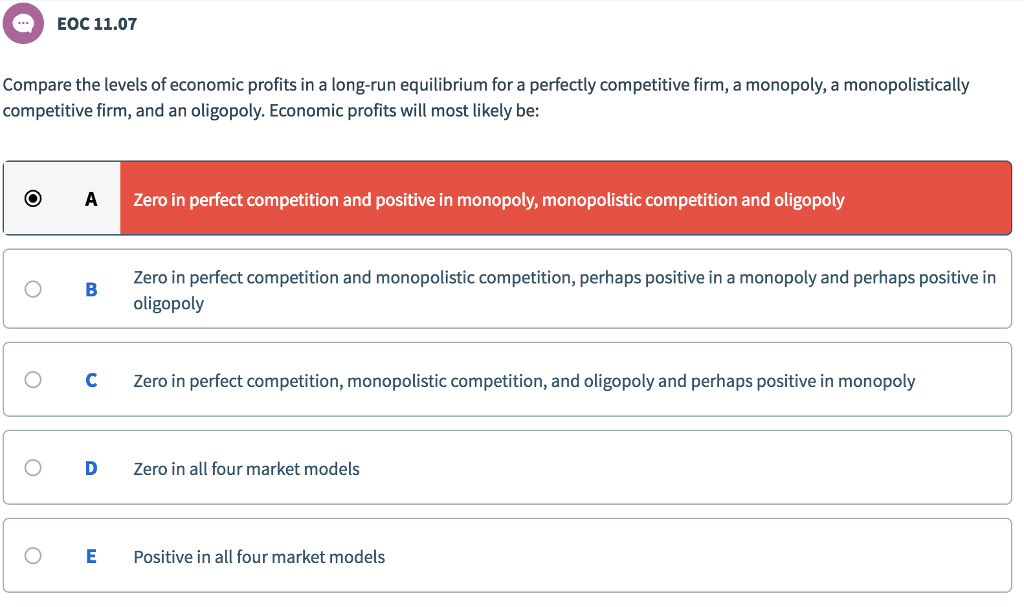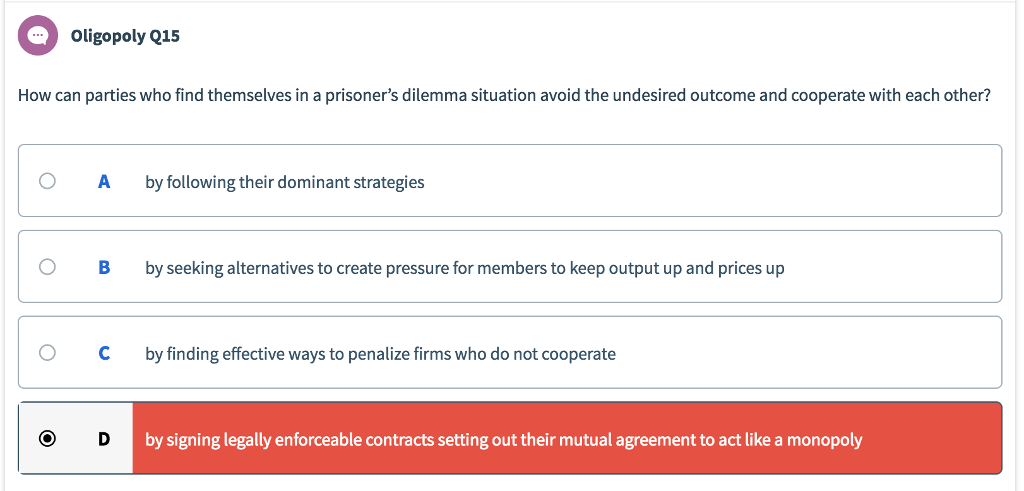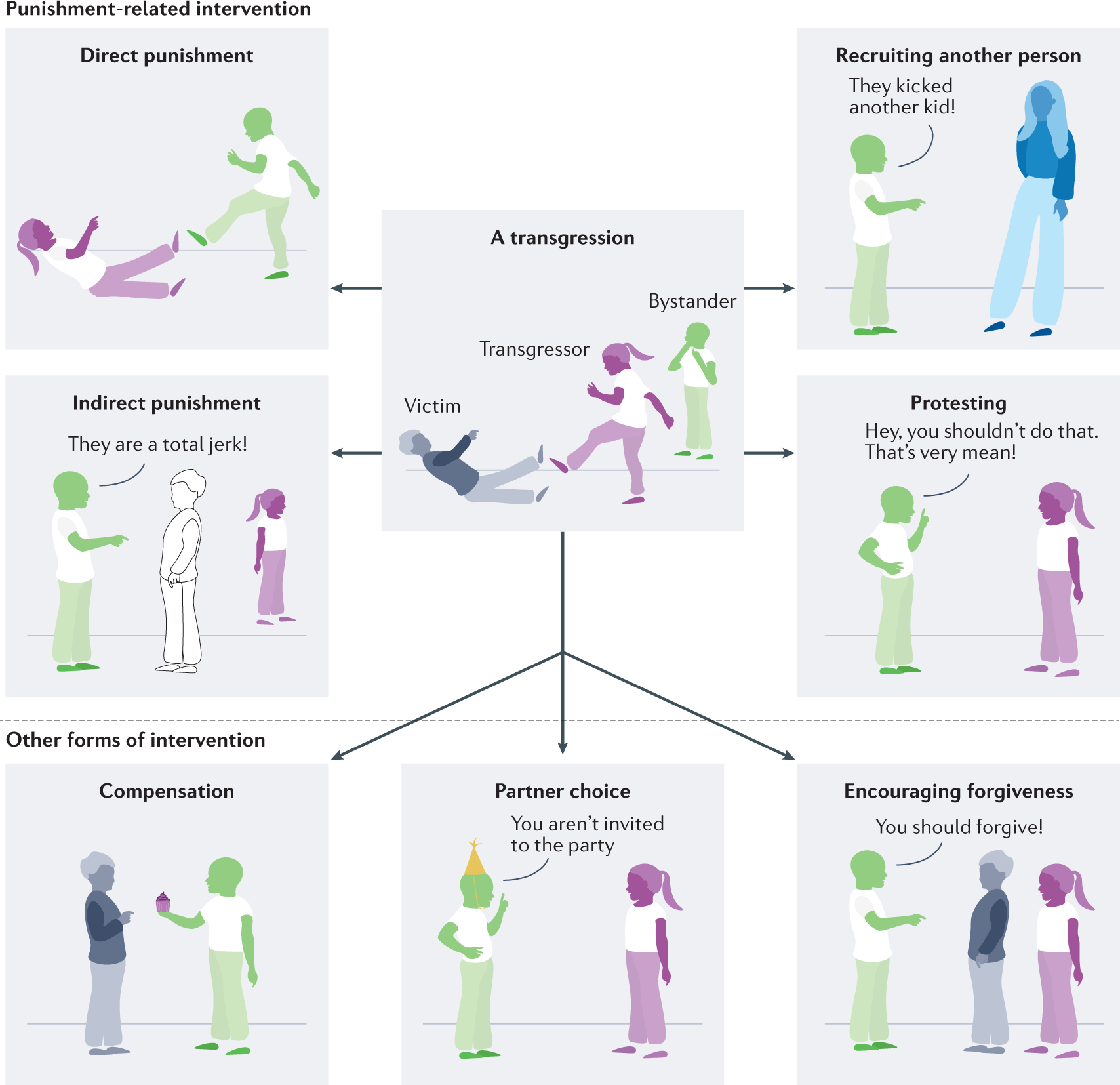How Can Parties Who Find Themselves in a Prisoner's Dilemma
How can parties who find themselves in a prisoners dilemma situation avoid the undesired outcome and cooperate with each other. The members of an oligopoly can face a prisoners dilemma also.

Solved Oligopoly Q15 How Can Parties Who Find Themselves In Chegg Com
The typical prisoners dilemma is set up so that both parties choose to protect themselves at the expense of the other participant.

. If each of the oligopolists cooperates in holding down output then high monopoly profits are possible. The members of an oligopoly can face a prisoners dilemma also. Avoid competing with each other How can parties who find themselves in a prisoners dilemma situation avoid the undesired outcome and cooperate with each other.
4 rows How can parties who find themselves in a prisoners dilemma situation avoid the undesired outcome. Eventually both of the parties are to reveal the side of the penny that they get simultaneously. How can parties who find themselves in a prisoners dilemma situation avoid the undesired outcome and cooperate with each other penalize those who do not cooperate prisoners dilemma It shows how in certain situations all sides can benefit from cooperative behavior rather than self-interested behavior.
How can parties who find themselves in a prisoner s dilemma situation avoid the undesired outcome and cooperate with each. As a result of following a logical. The desire of businesses to ____ _ _ _ _ _ _ _ _ _ _ _ _ _ _ _ _ _ _ ____ so that they can raise the prices that they charge and earn higher profits has been well - understood by economists for a long time.
The prisoners dilemma may be expressed as an approach where individual parties seek their welfare at the expense of the other party. Find effective ways to penalize firms who do not cooperate 35. If each of the oligopolists cooperates in holding down output then high monopoly profits are possible.
The first step to be undertaken by a profit-maximizing monopolistic competitor wanting to decide what price to charge is to select the profit maximizing quantity to produce. The prisoners dilemma refers to a paradox in the decision-making and modern game theory that exemplifies how two rational individuals trapped in the same situation are likely to respond to it without knowing others take on the same. Each oligopolist however must worry that while it is holding down output other firms are taking advantage of the high price by raising output and earning higher profits.
A monopolist faces the market demand curve and a monopolist competitor does not. The way out of a prisoners dilemma is to find a way to penalize those who do not cooperate. So thats it about Types of research from Iterated Prisoners Dilemma game and some examples of the research held because of the Iterated Prisoners Dilemma.
By seeking alternatives to create pressure for members to keep output up and prices up. Perhaps the easiest approach for colluding oligopolists as you might imagine would be to sign a contract with each. Enter the Prisoners Dilemma PD - a paradoxical game theory that articulates a scenario where two seemingly rational parties choose not to cooperate but instead choose outcomes which benefit.
If each of the oligopolists cooperates in holding down output then high monopoly profits are possible. Generally since both participants avoid cooperation in the decision. Dresher in 1950 and the modern interpretation was conceptualized by Canadian mathematician AW.
Perhaps the easiest approach for colluding oligopolists as you might imagine would be to sign a contract with each. Anyway both parties are to throw their pennies secretly in which the other person wont know what side you got either head or tails. Find effective ways to penalize firms who do not cooperate.
The first step to be undertaken by a profit-maximizing monopolistic competitor wanting to decide what price to charge is to. The desire of businesses to _____ so that they can raise the prices that they charge and earn higher profits has been well-understood by economists for a long time. The effect on segregation in Non.
If the CEO of IMaBigBank is playing prisoners dilemma then from his perspective the. Extraversion neuroticism and the Prisoners dilemma. How to Enforce Cooperation How can parties who find themselves in a prisoners dilemma situation avoid the undesired.
How can parties who find themselves in a prisoners dilemma situation avoid the undesired outcome and cooperate with each other. One oligopoly can physically beat up another oligopoly. Prisoners dilemma is a game in game theory in which two individuals acting in their own best interest pursue a course of action that does not result in the perfect outcome for both parties involved.
The way out of a prisoners dilemma is to find a way to penalize those who do not cooperate. They either act in their self-interests or refuse to cooperate leading to a sub-optimal or non-optimal. Both parties are given a penny in which both players are referred to as either even or odd.
If each of the oligopolists cooperates in holding down output then high monopoly profits are possible. The Oligopoly Version of the Prisoners Dilemma The members of an oligopoly can face a prisoners dilemma also. Each oligopolist however must worry that while it is holding down output other firms are taking advantage of the high price by raising output and earning higher profits.
How can parties who find themselves in a prisoners dilemma situation avoid the undesired outcome and cooperate with each other. Select the profit maximizing quantity to produce. Here are a few more examples of the studies that started from the Prisoners Dilemma.
The paradox was developed by mathematicians M. The members of an oligopoly can face a prisoners dilemma also. Each oligopolist however must worry that while it is holding down output other firms are taking advantage of the high price by raising output and earning higher profits.
How can parties who find themselves in a prisoners dilemma situation avoid the undesired outcome and cooperate with each other.

Solved Oligopoly Q15 How Can Parties Who Find Themselves In Chegg Com

Children As Assessors And Agents Of Third Party Punishment Nature Reviews Psychology

Comments
Post a Comment